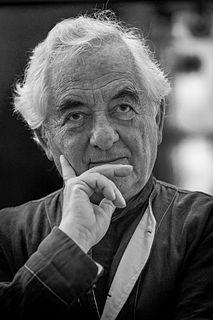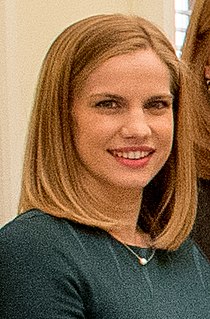A Quote by Charlotte Gainsbourg
I don’t have tons of scripts where I don’t know what to choose and I’m trying to calculate. It’s either I read something and I have an impulse to do it, or in meeting someone, I want to work with them, but it’s always been very obvious.
Related Quotes
A lot of actors choose parts by the scripts, but I don't trust reading the scripts that much. I try to get some friends together and read a script aloud. Sometimes I read scripts and record them and play them back to see if there's a movie. It's very evocative; it's like a first cut because you hear 'She walked to the door,' and you visualize all these things. 'She opens the door' . . . because you read the stage directions, too.
The desire to be liked is acceptable in real life but very problematic in fiction. Pleasantness is the enemy of good fiction. I try to write on the premise that no one is going to read my work. Because there's this terrible impulse to grovel before the reader, to make them like you, to write with the reader in mind in that way. It prevents you doing work that is ugly or upsetting or difficult. The temptation is to not be true to what you want to write and to be considerate or amusing instead. I'm always trying to fight against the impulse to make my readers like me.
There's a few historical reasons for why git was considered complicated. One of them is that it was complicated. The people who started using git very early on in order to work on the kernel really had to learn a very rough set of scripts to make everything work. All the effort had been on making the core technology work and very little on making it easy or obvious.
When you're adapting, you are working on someone else's problem that they have already solved. The work has been fine-tuned and read countless times, and you're just arriving at the end and taking what you want, so of course it is the regal way to moviemaking. Plays are just the ideal scripts - the structure is there and waiting for you.
A good script is like a work of art in itself. I've read hundreds of scripts, and good ones are very rare. If the writer has something to say, and a voice, and a plot that matches character, and an emotional trajectory that works, then I'd be an idiot to fool around with it. It's just that few scripts ever are like that.
I want to create work that extends beyond myself because I always thought it was a way to change the general rules about art, and also to give an impulse to something else. It's a transformation about attitude. Most of the time, when someone buys the object, it's 100 percent transferred to them. I don't think this is true. Something exists within the object that can never be appropriated. This little part, I try to make it visible.
I know firsthand how much work has usually gone into a screenplay, so if there's something that rings false or a line that I would think would need a tweak or something, I will think long and hard before I even recommend changing it. In that sense, I'm very faithful to the scripts that I get - if they're good scripts.




































